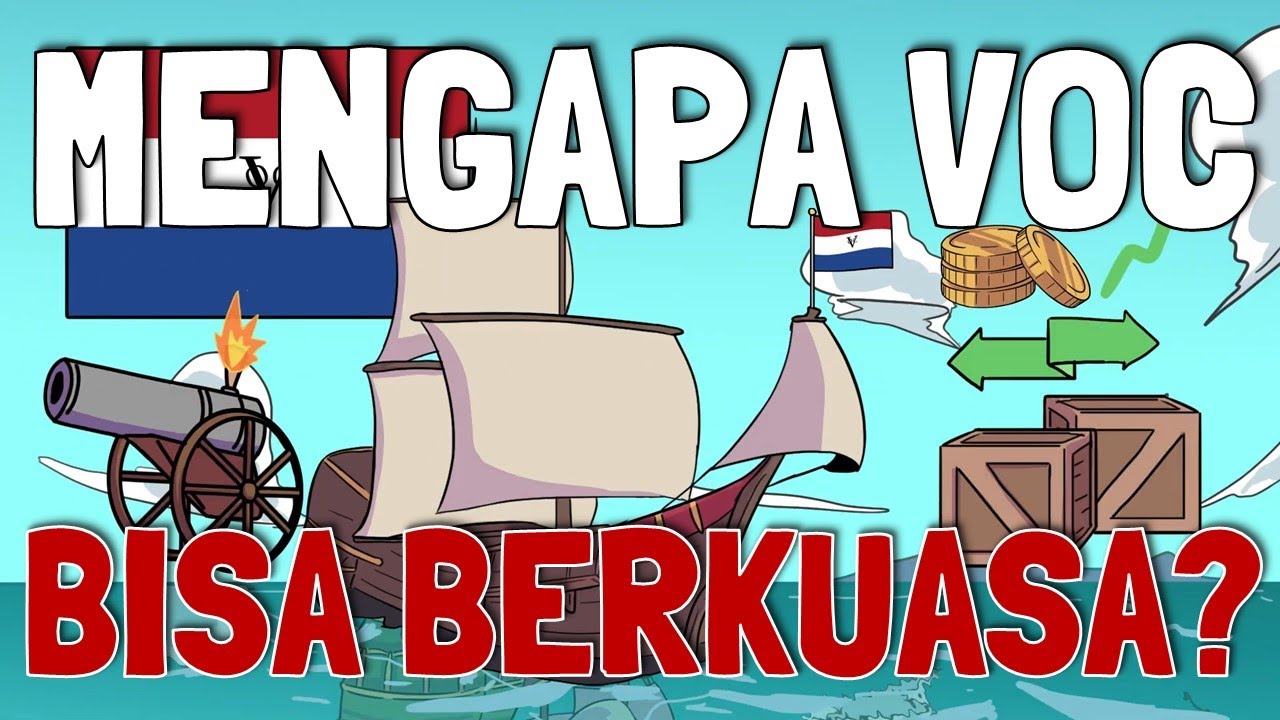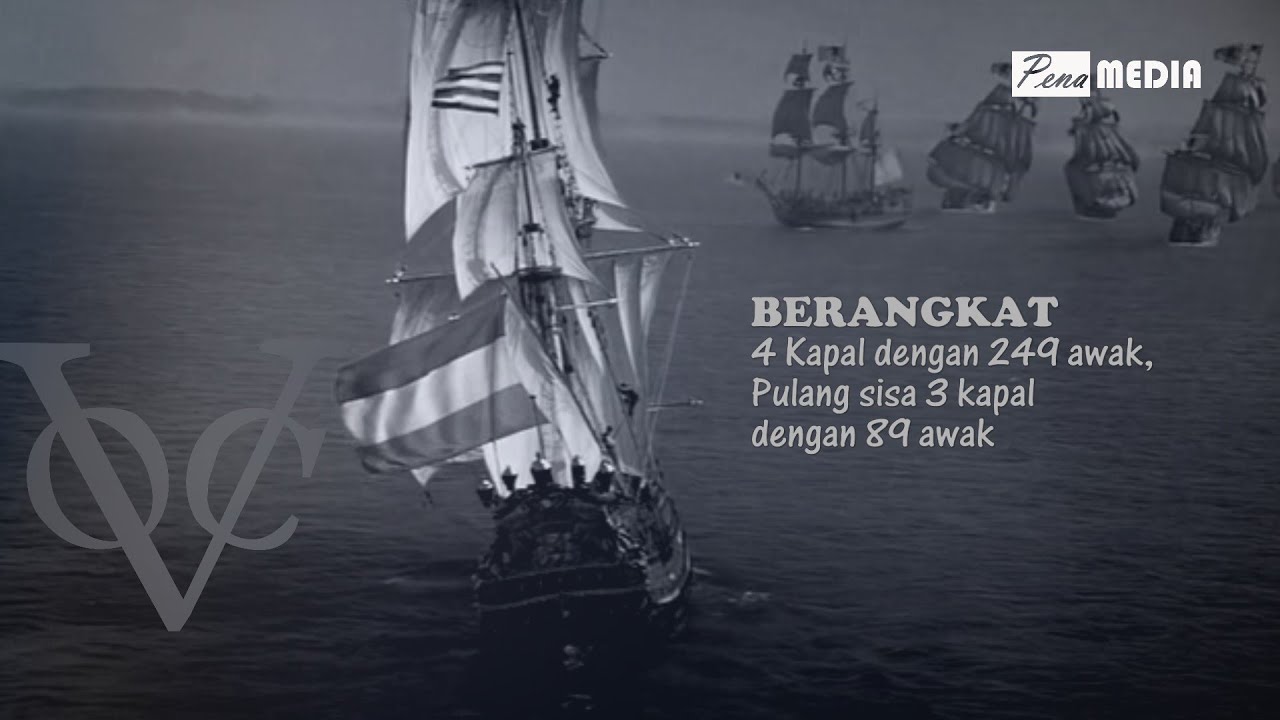PENGARUH MONOPOLI DALAM PERDAGANGAN
Summary
TLDRThis script discusses the impact of Dutch colonial rule in Indonesia, focusing on the monopolistic trade practices of the VOC (Dutch East India Company). It explains how the VOC controlled key commodities, like cloves, and enforced monopolies that suppressed local trade, causing hardship for Indonesian farmers. The VOC utilized divide and conquer tactics, political manipulation, and military force to expand its control. As a result, Indonesian kingdoms were weakened, and the local economy suffered. The eventual collapse of the VOC led to the establishment of Dutch rule in Indonesia, bringing further economic and social challenges to the Indonesian people.
Takeaways
- 😀 The Dutch East India Company (VOC) monopolized the spice trade in Indonesia, controlling production and export of spices like cloves, which were highly demanded in Europe.
- 😀 VOC implemented strict trade policies, forcing Indonesian farmers to sell their produce only to them, preventing other traders from participating in the market.
- 😀 Monopolies are when a single company controls a market, allowing them to set prices, as VOC did with the spice trade.
- 😀 VOC was granted special privileges by the Dutch government, known as 'Octroi Rights,' which included the power to mint money, create a military, and govern occupied regions.
- 😀 VOC used the 'Divide et Impera' (divide and conquer) strategy to manipulate local Indonesian kingdoms, fostering conflict between them to expand their control.
- 😀 The VOC’s monopolistic practices caused severe economic hardship for the Indonesian people, as they were forced to sell their products at unfairly low prices.
- 😀 VOC’s territorial expansion was supported by military force, with governors like Antonio Van Diemen and Johan Matsuyak playing key roles in the company’s aggressive policies.
- 😀 Despite initially flourishing, VOC eventually faced bankruptcy due to corruption and poor management, leading to its dissolution in 1799.
- 😀 After the VOC’s collapse, Indonesia came under direct Dutch colonial rule, known as the Dutch East Indies, marking the start of the colonial period.
- 😀 VOC’s policies had a lasting negative impact on Indonesian society, weakening local rulers, creating economic inequality, and introducing modern systems of military and taxation.
Q & A
What is the main topic of this lesson?
-The main topic of this lesson is the impact of monopoly trade practices during the Dutch colonial period in Indonesia, specifically focusing on the role of the Dutch East India Company (VOC).
What was the VOC's role in the spice trade in Indonesia?
-The VOC monopolized the spice trade in Indonesia, particularly in the Maluku Islands, where it controlled the production and sale of cloves, preventing local people from selling them to other traders.
What was the purpose of the VOC's monopoly in the spice trade?
-The VOC's monopoly allowed it to set prices for spices and control the market, enabling the company to buy spices at low prices from the local population and sell them at much higher prices in Europe.
What is meant by 'monopoly' in this context?
-In this context, 'monopoly' refers to the control of a market by a single company or entity, in this case, the VOC, which prevented other traders from competing and controlled both the supply and pricing of goods.
How did the VOC secure its monopoly over trade in Indonesia?
-The VOC secured its monopoly by negotiating exclusive trade rights with local kingdoms, using political manipulation and force, including dividing and conquering kingdoms through tactics like 'divide and rule' (devide et impera).
What was the effect of the VOC's monopoly on the Indonesian population?
-The Indonesian population suffered under the VOC's monopoly as they were forced to sell their produce at very low prices, and were denied the freedom to sell to other traders, leading to economic hardship and poverty.
What were the rights granted to the VOC by the Dutch government?
-The Dutch government granted the VOC several special rights, including the right to print money, maintain an army, govern occupied territories, make treaties with local rulers, monopolize spice trade, and establish fortresses.
Why did the local Indonesian kingdoms agree to the VOC's monopoly?
-The local kingdoms were often forced into agreements with the VOC due to political pressure, manipulation, or military support in conflicts, where VOC would support one side in a war in exchange for trade privileges or land.
What was the political consequence of VOC's presence in Indonesia?
-The VOC's presence led to the weakening of local monarchies, as it gradually took control over political power, reducing the influence and sovereignty of Indonesian rulers.
What was the eventual fate of the VOC?
-The VOC went bankrupt at the end of the 18th century due to corruption and poor management. It was formally dissolved on December 31, 1799, and the Dutch government took over direct control of Indonesia, marking the beginning of the Dutch colonial era.
Outlines

Dieser Bereich ist nur für Premium-Benutzer verfügbar. Bitte führen Sie ein Upgrade durch, um auf diesen Abschnitt zuzugreifen.
Upgrade durchführenMindmap

Dieser Bereich ist nur für Premium-Benutzer verfügbar. Bitte führen Sie ein Upgrade durch, um auf diesen Abschnitt zuzugreifen.
Upgrade durchführenKeywords

Dieser Bereich ist nur für Premium-Benutzer verfügbar. Bitte führen Sie ein Upgrade durch, um auf diesen Abschnitt zuzugreifen.
Upgrade durchführenHighlights

Dieser Bereich ist nur für Premium-Benutzer verfügbar. Bitte führen Sie ein Upgrade durch, um auf diesen Abschnitt zuzugreifen.
Upgrade durchführenTranscripts

Dieser Bereich ist nur für Premium-Benutzer verfügbar. Bitte führen Sie ein Upgrade durch, um auf diesen Abschnitt zuzugreifen.
Upgrade durchführenWeitere ähnliche Videos ansehen

Mengapa VOC Belanda Bisa Menjajah Nusantara? & Mengapa Akhirnya Runtuh?

Sejarah awal masuknya belanda di nusantara

KONDISI MASYARAKAT INDONESIA PADA MASA PENJAJAHAN - VIDEO IPS KELAS 8

VOC di Indonesia

Kenapa Dalam Sistem Penjajahannya Belanda Menerapkan Monopoli?

Perlawanan Bangsa Indonesia terhadap Penjajah Bangsa Eropa hingga awal abad 20 SEJARAH kelas 11
5.0 / 5 (0 votes)
